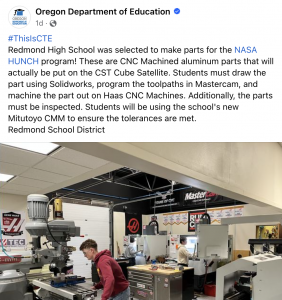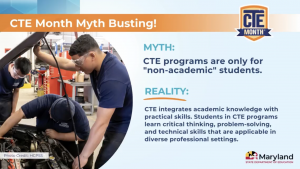This week the lawmakers in the House hosted the U.S. Secretary of Education (ED) to testify regarding the agency’s policies and priorities for the coming year. In addition, the Senate examined the U.S. Department of Labor’s budget request for the upcoming fiscal year while ED issues new guidance regarding school and institution’s civil rights obligations.
Cardona Questioned on Perkins Regulations
 On Tuesday, May 7, the House Education and Workforce Committee held a hearing focused on oversight of the U.S. Department of Education (ED) and its wider policies and priorities. The more than four hour hearing featured testimony from U.S. Secretary of Education Miguel Cardona who responded to a wide range of questions and topics from lawmakers on the panel. These included a particular focus on ED’s ongoing challenges in implementing a newly revamped Free Application for Federal Student Aid (FAFSA) and newly finalized Title IX regulations which are set to go into effect later this summer.
On Tuesday, May 7, the House Education and Workforce Committee held a hearing focused on oversight of the U.S. Department of Education (ED) and its wider policies and priorities. The more than four hour hearing featured testimony from U.S. Secretary of Education Miguel Cardona who responded to a wide range of questions and topics from lawmakers on the panel. These included a particular focus on ED’s ongoing challenges in implementing a newly revamped Free Application for Federal Student Aid (FAFSA) and newly finalized Title IX regulations which are set to go into effect later this summer.
In addition, Rep. “GT” Thompson (R-PA) questioned Cardona regarding ED’s plans to issue new regulations for the Carl D. Perkins Career and Technical Education Act (Perkins V) and highlighted the significant negative disruption this would have on states and Perkins recipients nearly six years after the law’s passage as communities collectively begin a new four-year planning cycle for the legislation. Thompson questioned Cardona as to whether programs funded by Perkins V are actively responding to the needs of the labor market and whether the law’s implementation, more broadly, has been successful. Significantly, Cardona responded yes to both of these questions and went on to say that he believes, “…that the evolution of Perkins to include CTE is where we need to go and it has been successful to get states to look at it differently.”
When questioned further regarding the need for additional regulations for Perkins V, Cardona indicated that the planned proposed rules would be intended to broaden opportunities for learners to engage in “earn to learn” programs but did not specify a clear rationale for issuing new rules on the topic at this time nor did he provide further detail regarding what these regulations are likely to entail. Advance CTE has continued to raise significant concerns regarding these forthcoming regulations and has questioned why they are specifically necessary at this point in the law’s implementation.
View an archived webcast of the hearing, including Cardona’s written testimony and related opening statements from lawmakers
Senate Examines DOL’s FY25 Budget Request
Yesterday, May 9, the Senate Appropriations Labor, Health and Human Services, Education, and Related Agencies (Labor-HHS-ED) Subcommittee held a hearing to examine and consider President Biden’s budget request for the U.S. Department of Labor (DOL) for the upcoming 2025 federal fiscal year (FY25). The hearing featured testimony and perspectives from Acting U.S. Secretary of Labor Julie Su regarding aspects of the agency’s FY25 budget request. The hearing examined a broad range of issues, including recent regulatory changes proposed or otherwise finalized by DOL, and highlighted the importance of workforce development investments.
View a full recording of the hearing including Su’s testimony
ED Issues New Guidance on Civil Rights Obligations
On Tuesday, May 7, the U.S. Department of Education (ED) issued a new Dear Colleague Letter (DCL) outlining school leaders’ responsibilities under Title VI of the Civil Rights Act of 1964. The DCL provides detailed scenarios and guidelines for identifying acts that could be considered discriminatory, including vandalism, protests, and verbal harassment.  The guidance letter clarifies the legal requirements schools and institutions must adhere to in order to remain compliant with federal laws and emphasizes that non-compliance could lead ED to withhold federal funding. The guidance comes amid reported increases in antisemitic and other identity-based incidents on college campuses and within K-12 schools over the past several months.
The guidance letter clarifies the legal requirements schools and institutions must adhere to in order to remain compliant with federal laws and emphasizes that non-compliance could lead ED to withhold federal funding. The guidance comes amid reported increases in antisemitic and other identity-based incidents on college campuses and within K-12 schools over the past several months.
View more information from ED on the guidance
Steve Voytek, Policy Advisor


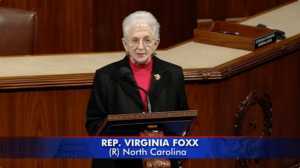
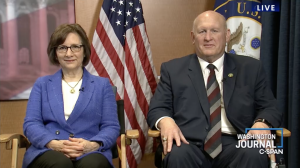
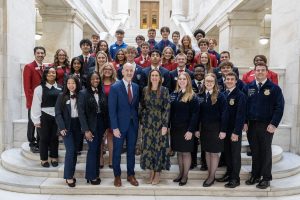
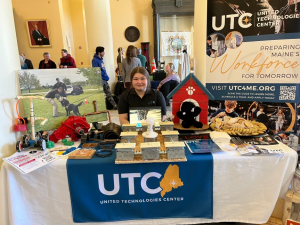 Maine kicked off Career and Technical Education (CTE) Month at the State House with a showcase featuring learners, instructors, and directors from 15 of the state’s 27 CTE centers. The showcase featured learners’ advanced skills in areas from biotechnology and hospitality to welding and graphic design. Notably, every instructor and director at the event reported an increase in “non-traditional students” participating in CTE programs.
Maine kicked off Career and Technical Education (CTE) Month at the State House with a showcase featuring learners, instructors, and directors from 15 of the state’s 27 CTE centers. The showcase featured learners’ advanced skills in areas from biotechnology and hospitality to welding and graphic design. Notably, every instructor and director at the event reported an increase in “non-traditional students” participating in CTE programs. 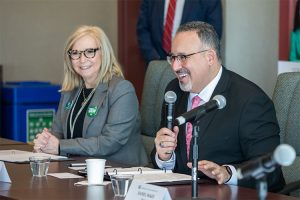 On February 21, U.S. Secretary of Education Miguel Cardona visited the Community College of Rhode Island (CCRI) as part of President Biden’s Investing in America Tour. The visit featured a tour of CCRI’s advanced manufacturing lab, a roundtable discussion with educational leaders, and dialogues with learners. Additional discussions took place with CCRI’s President Rosemary Costigan, Rhode Island Governor Dan McKee, and U.S. Representative Gabe Amo.
On February 21, U.S. Secretary of Education Miguel Cardona visited the Community College of Rhode Island (CCRI) as part of President Biden’s Investing in America Tour. The visit featured a tour of CCRI’s advanced manufacturing lab, a roundtable discussion with educational leaders, and dialogues with learners. Additional discussions took place with CCRI’s President Rosemary Costigan, Rhode Island Governor Dan McKee, and U.S. Representative Gabe Amo. 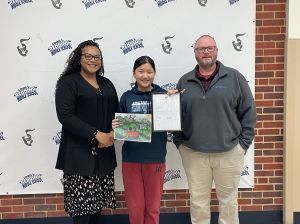 DACCTE Celebrates Poster Contest Winner
DACCTE Celebrates Poster Contest Winner